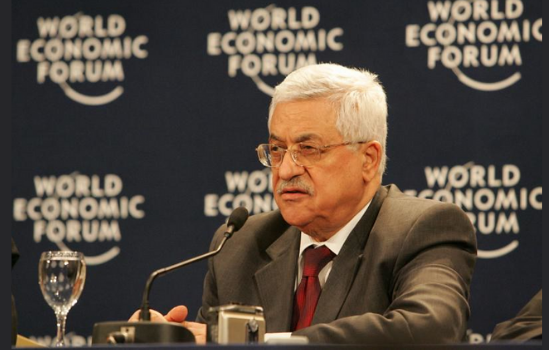Palestinian Elections: Abbas’s Calculated Risk Or Gamble? – Opinion: Avi Melamed, Jerusalem Post, Apr. 21, 2021
“A political split within Fatah weakens the organization and could give the Hamas Islamist movement – the bitter rival of Fatah – an edge in the elections. Abbas is therefore taking a considerable risk in calling for elections.”
In January, Palestinian Authority President Mahmoud Abbas signed a presidential decree announcing elections for the Palestinian Parliament and the presidency. The elections are to take place in late May and July, respectively. Abbas also called to reconstitute the Palestinian National Council – a body representing the world’s Palestinians – by late August.
In 2009, Abbas’s term as president was extended with no end date. He is now 85 years old, and his health has been deteriorating. It is the twilight of his rule, and this fact is creating a leadership power struggle in the ranks of Fatah. The elections are intensifying this inner-power struggle and creating a rift within the party. A political split within Fatah weakens the organization and could give the Hamas Islamist movement – the bitter rival of Fatah – an edge in the elections. Abbas is therefore taking a considerable risk in calling for elections.
Fatah and the Legislative Council Elections: The Split and Its Implications: Yohanan Tzoreff, Kobi Michael, INSS Insight No. 1456, Apr. 25, 2021
“Abu Mazen, who has been an object of severe criticism among the general public and in Fatah for the past seven years, took a series of actions that greatly strengthened his control of the organization, the Palestinian Authority, and the PLO.”
The decision by Abu Mazen to hold elections has proven to be a dangerous gamble. The Palestinian President assumed that the setbacks to the Palestinians in recent years at the hands of the Trump administration, the threat of Israeli annexation of parts of the West Bank, and the normalization of relations between Israel and Arab countries would unite the Palestinian people and postpone the internal crises in the Fatah movement for the rest of his term in office. The leaders of Fatah and Hamas even tried to form a joint list in the elections.
Abu Mazen’s decision to hold elections was also influenced by pressure exerted by the European Union and the donor countries, and by the change in United States administrations. He believed that this decision would draw him closer to the Biden administration and help restore relations to what they were before the Trump presidency.
Palestinian Elections: What the Biden Administration Does Not Want to Know: Khaled Abu Toameh, Gatestone Institute, Apr. 12, 2021
“Although the candidates have still not announced their political platforms, it is already evident that some of them have no intention of complying with the wishes of the State Department about “renouncing violence and terrorism” or accepting the “two-state solution.”
During a press briefing on April 1, US State Department Spokesperson Ned Price talked about the upcoming Palestinian elections and the “two-state solution.” On the elections, the first in 15 years, Price said:
“The exercise of democratic elections is a matter for the Palestinian people to determine. We note that the US and other key partners in the international community have long been clear about the importance of participants in that democratic process, renouncing violence and renouncing terrorism, recognizing Israel’s right to exist.”
On recognizing Israel’s right to exist, Price said:
“The two-state solution is precisely what will allow Israelis and Palestinians to live side by side in dignity and security, securing the interests – in the interests of Israelis, in the interests of Palestinians together. That’s precisely why are we are supporting this two-state solution, just as previous administrations of both political stripes have.”
What Does The Return Of The ‘Two-State Solution’ Mean?: Amb. Alan Baker, Jerusalem Center for Public Policy, No. 642, Apr. 22, 2021
That is precisely why the two-state solution continues to be the crux of how we view the conflict and where we believe—and how we believe the conflict should be resolved,”
Since the Biden administration’s inauguration in January, leading officials have repeatedly advocated the “two-state solution” as the only means to resolve the Palestinian-Israeli dispute.
Immediately after taking office and in his first interview as secretary of state, Antony Blinken told CNN news anchor Wolf Blitzer on Feb. 8 that President Joe Biden strongly supports the two-state solution to the Israeli-Palestinian conflict, since “it is the only way to ensure Israel’s future as a Jewish and democratic state, and the only way to give the Palestinians a state to which they’re entitled.”Podcast: Jonathan Schanzer on the Palestinians’ Political Mess: Mosaic Magazine, April 2021
_______________________________________________________________________
For Further Reference:
Podcast: Jonathan Schanzer on the Palestinians’ Political Mess: Mosaic Magazine, April 2021
Israel Arrests 17 More Rioters As Arab-Jewish Clashes In Jerusalem Continue: Yori Yalon and Shahar Klaiman, JNS, Apr. 25, 2021 — The Israel Police announced on Sunday that it had arrested 17 people suspected of involvement in the violent clashes between Arabs and Jews in Jerusalem that began on April 13, the start of the Muslim holiday of Ramadan, and have been escalating over the past week.
It’s Lucky The Palestinians Have Israel To Blame: Daniel Siryoti, Israel Hayom, Apr. 21, 2021 — There is still no clear answer to the question about whether the Palestinians will be holding legislative elections.
Palestinian Elections: What is Happening?: Daoud Kuttab, Al-Monitor, Mar. 28, 2021 — The general Palestinian legislative elections due to take place May 22 has shaken up the still internal Palestinian waters.
Palestinian Militant Will Challenge Abbas’s Party in Election: Patrick Kingsley and Adam Rasgon, NY Times, Mar. 31, 2021 — A popular Palestinian militant broke with the political party that controls the Palestinian Authority late Wednesday, escalating a power struggle and dimming the party’s hopes of retaining a monopoly on power in parliamentary elections.


